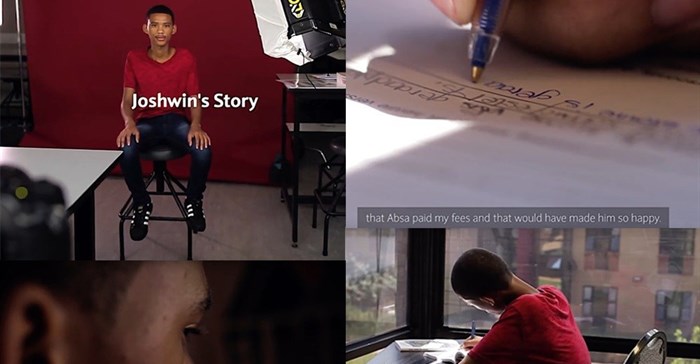
Top stories


ESG & Sustainability#BudgetSpeech2026: SRD grant unchanged, other Sassa social grants see hike
9 hours



More news












ESG & Sustainability
South Africa’s carbon tax should stay: climate scientists explain why









That’s because ANN7 believes our banks are the devil incarnate, after all four of the major ones closed the Gupta family companies’ bank accounts in South Africa last year. Banks and “white monopoly capital” are the themes even of advertising on ANN7, which claims to be leading a crusade (oops, campaign) to bring South African true economic freedom.
The Absa Prosper campaign is one which should make the Guptas and their TV station and newspaper seriously uncomfortable, because it shows that even an evil corporate like a bank can make a serious contribution to empowering South Africans from the poorest communities. That is proper corporate social responsibility… somewhat further reaching than sponsoring a Hindu festival at the War Museum and then manhandling journalists who try to cover it, not so?
There are a number of different stories in the Prosper series, which showcase how Absa is helping deserving students from poor backgrounds get an education, which will change their lives. It’s powerful because it is true.
But the one which did leave me with a lump in my throat was that of Northern Cape student Joshwin Sampson, who is enrolled under an Absa bursary at the University of the Free State.
He talks simply and manages to keep his emotions in check (just) as he describes the sacrifices his family were prepared to make to ensure their children got an education and, therefore, a way out of poverty.

Joshwin says his father was always worried about not having enough money to pay those fees, for school and university. When the worry began to get out of hand, his father started contemplating suicide, because he knew his life insurance policies would at least pay out something for the education of his children.
And, that is what he did. He took his own life.
Joshwin then goes on to say that if only his father could see him now, with his studies covered by Absa.
Then, he makes the point which is glaringly absent in a lot of the anti-business propaganda or calls for radical transformation: you cannot escape from poverty unless you have an education.
That is where Absa is putting its money… and more than 2,000 students around the country are beneficiaries of the scheme which is helping Joshwin.
Absa gets an Orchid for running a truly beneficial corporate social investment campaign and for also using that to further its brand message that it does help people prosper.
Maybe I’m too much of a cynical bastard, or maybe it’s just because I don’t like contrived rubbish in an advert – whatever the reason, I find Vodacom’s latest ad for its specific needs service to be sentimental slop. The story is narrated by someone who is supposed to be old and blind trying to reunite a couple who were forcibly separated 20 years ago. His lines are delivered with a wooden-ness which makes you cringe when you hear them. Perhaps the voice artist was also embarrassed by the dreck he was having to read. So, the story goes that Thandi and Robert were lovers, 20 years ago (remember this, it is important). He, a sculptor, was blind, but he knew her beauty through tracing the contours of her face with his hands. Her father, the ponderous narrator tells us, was dead set against the relationship and so he stopped them from seeing each other.
Now, 20 years later, thanks to Vodacom’s technology, the visually impaired friend can help put the visually-impaired sculptor and his beloved back together.
And so there is a happy ending, as Thandi puts her hand on Robert’s shoulder. Cue tears… and cheese.
For the people of Facebook land, who love this commercial because it is such a beautiful story, here’s the news: It is not true. Nor is it very good.
Let’s take the 20 years ago aspect. The lovers would have been in their 20s in 1997. And they would be about 40-ish now, not knocking 70, as they appear in the ad.
But here’s the kicker: How many women were wearing Afros in 1997 and dressing as though they had walked out of a Shaft movie in the 70s?
Exactly. I rest my case.
Vodacom gets an Onion because it has actually demeaned those special needs customers its technology can help, by not telling a real story. I am sure there are plenty of real stories, with real visually impaired people, where you can not only sell your product but can also help create awareness of their problems and the way they tackle life’s challenges.
*Note that Bizcommunity staff and management do not necessarily share the views of its contributors – the opinions and statements expressed herein are solely those of the author.*
